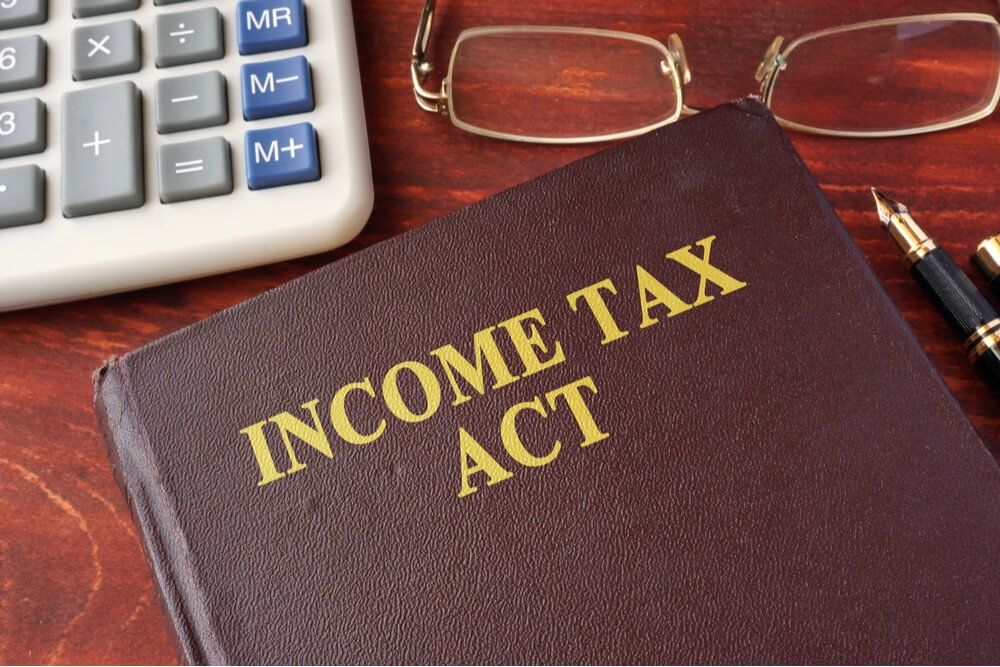Income tax
111a of Income Tax Act

Section 111A of the Income Tax Act relates to the taxation of Income arising out of the sale of equity shares or gadgets of an equity-orientated fund that have been received through the making of stocks with the aid of a company. This segment was designed to bring to tax the short-gain realised through investors who participate in an Initial Public Offer (IPO) or follow-on public offer (FPO) and then sell their stake shortly thereafter.
Background and Purpose
IPO or FPO was the only real option available for traders and they could subscribe for such issues and promptly sell their shares immediately after launch and vend their profits as long-time period capital gains, which were earlier taxed at cheaper rates. It developed into seen that this practice changed into visible as a manner to avoid the higher tax rate relevant to brief time period capital gains.
In this regard, to prevent such a trend and to ensure that the stake obtained will be taxed as it should in the short timeframe over the sale of such shares, Section 111A was introduced in the Finance Act of 2017. The principal rationale of this section is to ensure that the buyers use an honest proportion of taxes on the profits made from the rapid turnover of newly acquired stocks.
Applicability
Further, section 111A is attract with reference to the switch of equity stocks or units of an fairness-oriented fund that was acquired on or after the 1st of October of 2004 Everyone. The segment is allowed if the stock or equipment is used within one year from its acquisition.
Tax Rate
Section 111A stipulates that the determined-time era capital profits, which arise from the exchange in fairness stocks / gadgets purchased in manipulating stocks of a company, are topic to taxation on a flat fee of 15%. The aforesaid subject charge holds good both in the case of resident and non-resident taxpayers.
Calculation of Tax Liability
To calculate the tax liability underneath Section 111A, the following steps are observed:To calculate the tax liability underneath Section 111A, the following steps are observed:
1. Identify the sale proceeds of the fairness shares or switching the units.
2. The mathematical formula for calculating the Value of acquisition is the purchase fee plus another fee related immediately to the acquisition.
3. As to the quick-term capital gain, subtract the amount that was spent on the acquisition from the amount of proceeds from the sale.
4. The tax charge, which will apply to the quick-time period capital benefit, which is £1m, is a flat rate of 15%.
Five. Any other such tax surcharge and cess that needs to be added should then get added to obtain the total tax burden.
However, I would like to emphasize that the COG is defined solely based on the actual cost borne by the taxpayer and not on actual cost, fair market value or any other screen cost.
Exemptions and Deductions
Section 111A does no longer provide for any particular exemption or deductions as follows. But then there are the numerous general deductions permissible under the Income Tax Act along with the STT and other incidental expenses that directly relate to the change-over, which can be rightly set-off proportionate to the amount of the fast-term figures.
Reporting and Compliance
They have to declare the fast-term capital gains emerging from change in the equity stocks or units under Section 111A as part of income tax returns. The profits should be stated beneath the main operational income headline, frequently called as ‘‘Capital Gains. ‘’
Furthermore, for shareholders of fairness stocks or gadgets, taxpayers might also have to provide records of the respective sale transactions, on the fairness shares issued with the aid of a agency in few of the prescribes schedules or documents filed along with profits tax returns.
Implications and Considerations
The role played by section 111A has been apparent in altering the funding behaviors of the consumers especially those those who used to practice what is known as ‘churning’ whereby they acquired stocks explicitly with the objective of realizing quick gains which were subjected to lower tax rates. The appearance of this segment prevailing such practices and insisting on a more appropriate taxation of temporary profit in the turnover of newly received securities.
Conclusion
Thus, this could be taken into consideration that Section 111A of the Income Tax Act is crucial for performing the taxation quick-term gains. This segment was designed to bring to tax the short-gain realised through investors who participate in an Initial Public Offer (IPO) or follow-on public offer (FPO) and then sell their stake shortly thereafter.
-

 Credit Card2 years ago
Credit Card2 years agoHow to Foreclose ICICI Credit Card EMI
-

 Saving Schemes2 years ago
Saving Schemes2 years agoHow to Check Sukanya Samriddhi Account Balance by SMS
-

 Credit Card2 years ago
Credit Card2 years agoHow to Unblock Credit Card ICICI
-

 Government Schemes1 year ago
Government Schemes1 year agoHow to Apply for Ayushman Bharat Yojana: A Step-by-Step Guide
-

 Saving Schemes2 years ago
Saving Schemes2 years agoHow to Open a Sukanya Samriddhi Account Online: A Step-by-Step Guide
-

 Government Schemes2 years ago
Government Schemes2 years agoGovernment Schemes for Girl Child
-
Credit Card2 years ago
How to Check ICICI Credit Card Balance
-

 Credit Card2 years ago
Credit Card2 years agoHow to Change Address in ICICI Credit Card
